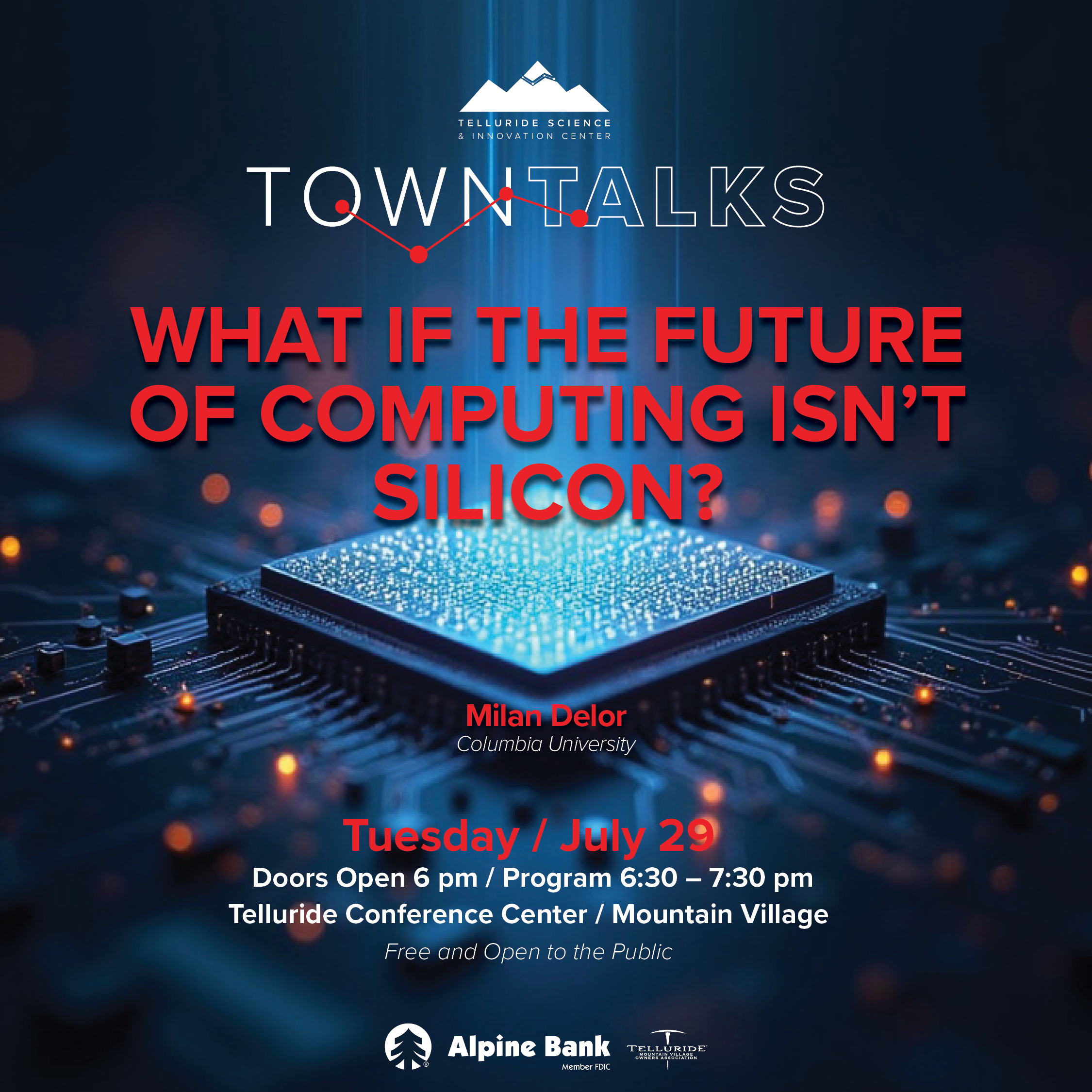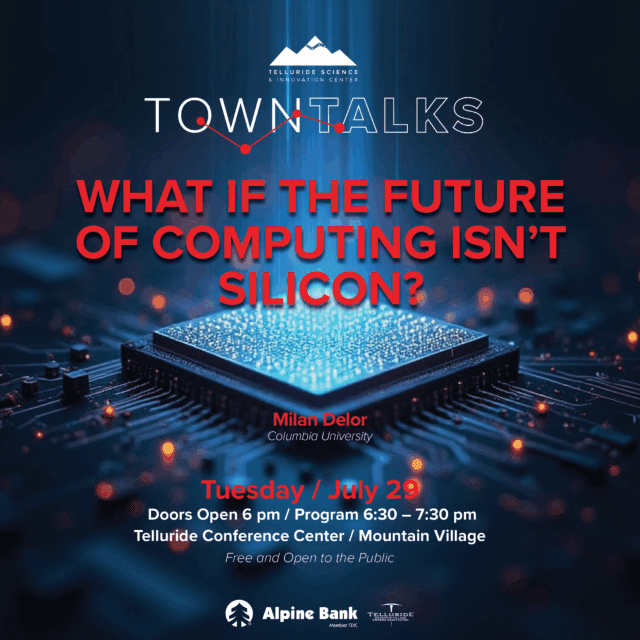
23 Jul Telluride Science Town Talk: “What If Future of Computing Isn’t Silicon?,” 7/29!
This coming week the 2025 Telluride Science Town Talks series continues with “What If Future of Computing Isn’t Silicon?” The event features Dr. Milan Delor and takes place Tuesday, July 22. Doors 6 p.m.; talk, 6:30 p.m
Town Talks are FREE and open to the public.
Visit telluridescience.org to learn more about Telluride Science and the capital campaign to transform the historic Telluride Depot into the Telluride Science & Innovation Center. The venue is the permanent home for Telluride Science and a global hub of inspired knowledge exchange and development where great minds get to solve great challenges.
The 2025 Telluride Science Town Talks series is presented by Alpine Bank with additional support from the Telluride Mountain Village Owner’s Association.
Go here for more about Telluride Science.
Go here for more on Town Talks.

On November 30, 2022, arguably our world changed. That was the day OpenAI launched the chatbot, ChatGPT or Chat Generative Pre-trained Transformer. The AI technology enables users to refine and direct their thoughts towards a particular length, format, style, level of detail, and language.
Fast forward to 2025. ChatGPT and other AI programs generate responses for millions of users. These responses make our lives easier, yes, but they come at a cost: Water.
In order to fill our requests, AI Chatbots run thousands of calculations that generate heat in their silicon-based servers. The amount of water needed to cool these super hot servers down quickly adds up. For example a 100 -word email produced by ChatGPT consumes over half a liter or about a bottle of water.
But that kind of water consumption doesn’t have to be the future of AI. Scientists like Dr. Milan Delor and his team at Columbia University are experimenting with new materials that could build faster, more efficient computers without challenging our water supply.
On July 29, Delor is speaking at Telluride Science’s upcoming Town Talk: “What if the Future of Computing Isn’t Silicon?”
Delor’s work focuses on using different materials like graphene, a form of the graphite in pencil lead, as semiconductors and energy harvesters to allow computers to run at high speeds – and at low temperatures. Materials such as graphene represent a breakthrough in computer technology, with the potential to transform AI; accelerate scientific research such as drug discovery; and advance fields like astrophysics and climate modeling without compromising our water supply.
Dr. Milan Delor, more:

Dr. Milan Delor is an Assistant Professor in the Department of Chemistry at Columbia University, where he leads the Delor Lab.
He earned a BSc and Master’s degree in Physics from the University of Leeds, graduating top of his class in 2010, before completing his PhD in Physical Chemistry at the University of Sheffield in 2014.
Delor’s work aims to revolutionize the way energy and information are converted and transported in modern materials, with applications in solar energy, quantum devices, and optical sensing.


Sorry, the comment form is closed at this time.